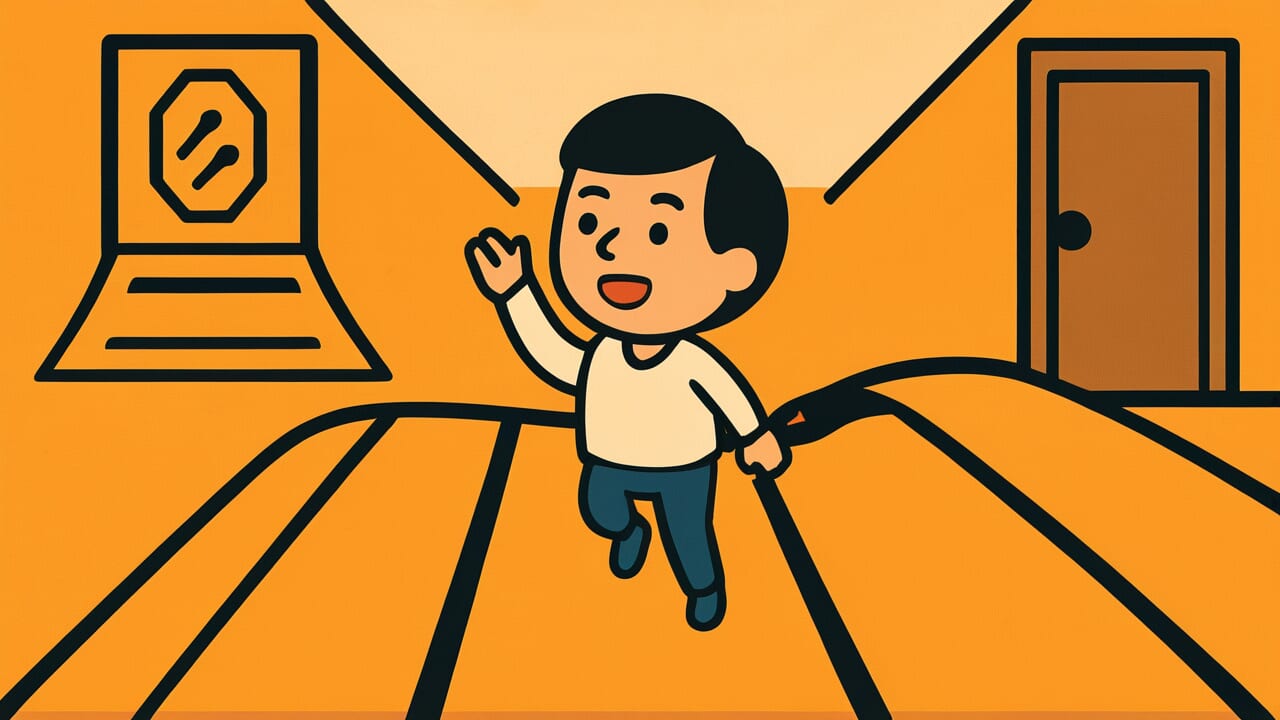How to Read “Advance when you see possibility and retreat when you know difficulty”
Ka wo mite susumi nan wo shirite shirizoku
Meaning of “Advance when you see possibility and retreat when you know difficulty”
This proverb teaches wisdom for living well. It says you should act when you find good opportunities and pull back when you sense trouble ahead.
Success in life doesn’t come from charging forward blindly. You need the ability to judge situations accurately.
When “possibility” or a chance appears, move forward with courage. When “difficulty” or danger looms ahead, don’t force it—retreat instead.
Making these two judgments correctly leads to long-term success. This skill matters greatly in modern society too, especially in business and relationships.
You need to balance courage with caution. Don’t let emotions control you. Analyze situations calmly and clearly.
Origin and Etymology
The exact source of this proverb has several theories. Most scholars believe it was influenced by ancient Chinese philosophy, especially military strategy texts.
Using contrasting concepts like “possibility” and “difficulty” appears frequently in ancient Chinese strategic thinking.
“Possibility” means opportunity or favorable conditions. “Difficulty” represents danger or hardship.
The ability to distinguish between these two has always been the most important quality for military commanders and rulers. Misjudging when to advance or retreat can lead to disaster.
The phrase “know and retreat” deserves special attention. “Retreat” here doesn’t mean simple escape.
It means strategic withdrawal based on correct understanding of the situation. The proverb teaches that pulling back at the right time is just as important as moving forward with courage.
After reaching Japan, this wisdom connected with the spirit of bushido. It became valued as teaching that shows the difference between cowardice and wise judgment.
The proverb has been passed down through generations. It explains true strength—not just bravery, but also calm judgment.
Usage Examples
- We should approach launching a new business with the spirit of “Advance when you see possibility and retreat when you know difficulty”
- Investment timing is where “Advance when you see possibility and retreat when you know difficulty” becomes most important
Universal Wisdom
Humans have two opposing instincts. One is the drive to seize opportunities. The other is the defensive instinct to protect ourselves from danger.
This proverb has been passed down for hundreds of years. Our ancestors deeply understood how difficult and important it is to balance these two instincts.
What’s interesting is that this proverb values both advancing and retreating equally. We usually see moving forward as courage and pulling back as weakness.
But true wisdom isn’t about choosing one over the other. It’s about having the flexibility to choose appropriately based on the situation.
Looking back at human history, countless people have perished from reckless charges. Just as many have missed opportunities through excessive caution.
Those who survived and prospered were always the ones who could make this distinction. This truth applies to individual lives and organizational management alike.
This proverb teaches more than just tactics for getting by. It’s about the essence of mature living.
On life’s uncertain journey, you hold onto hope while facing reality. You have courage while keeping humility. This is what the proverb truly means.
When AI Hears This
Shannon, the founder of information theory, created equations for a key problem. In communication channels with noise, how far should you trust the signal and keep transmitting?
The decision-making this proverb describes is essentially a human version of communication protocols.
Communication systems constantly calculate the signal-to-noise ratio of received signals. When the ratio is high, data transmission continues. When it’s low, transmission stops or switches to error correction mode.
Humans unconsciously evaluate the ratio between “possibility” as signal and “difficulty” as noise.
What’s fascinating is that information theory proves adaptive control is most efficient. This means dynamically adjusting the threshold—the boundary line for judgment—based on circumstances.
For important data transmission, you set a strict threshold. You stop transmission at the slightest increase in noise.
For communication where some errors are acceptable, you loosen the threshold. The essence of this proverb lies in the ability to adjust this threshold according to situations.
Charging ahead seeing only “possibility” means your threshold is too loose. Being oversensitive to “difficulty” means your threshold is too strict.
Shannon’s theory shows that perfect communication is impossible. But you can transmit information at optimal speed while recognizing noise.
Human decision-making also aims for this “optimization that incorporates noise” rather than complete certainty.
Lessons for Today
For us living in modern times, this proverb teaches the importance of flexibility. Some believe stubbornly continuing on a chosen path is a virtue.
But when circumstances change, you also need courage to change your approach.
In our rapidly changing modern society, this ability to judge becomes increasingly important. You need courage to take on new challenges and calmness to recognize when to pull back.
Having both qualities lets you avoid wasteful exhaustion. You can focus your energy on truly valuable moments.
What matters most is not seeing retreat as failure. Withdrawal at the right time is preparation for the next opportunity.
Just as athletes take rest periods, just as business professionals temporarily play defense, wise retreat is a running start for your next leap forward.
In your life, is now the time to advance or the time to pause? Don’t fear making that judgment.
Observe situations calmly. Trust your intuition and make decisions. These accumulated choices will guide you to real success.



Comments